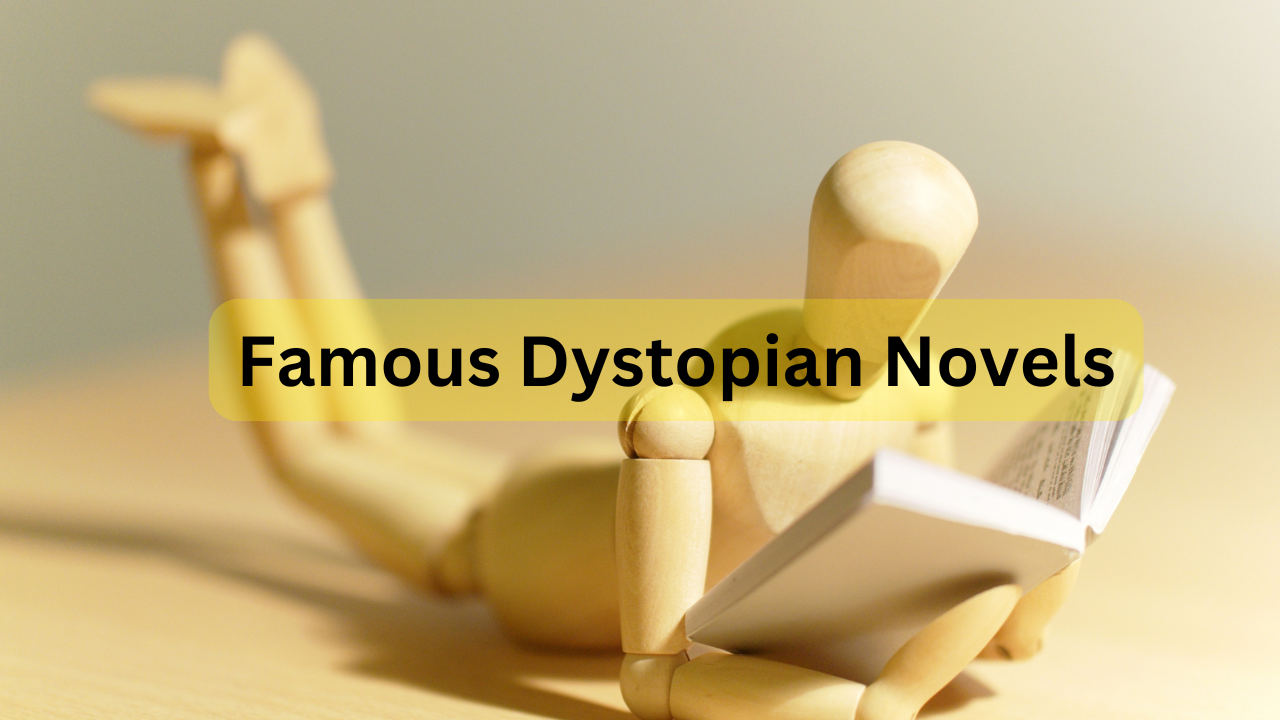Ever wondered what life would be like if everything went off the rails? That’s the dystopian genre for you! Dystopian literature takes us to societies where things have gone south—like, way south. We’re talking about oppressive governments, extreme poverty, or tech gone rogue. Think of it as a literary “what if” that makes you say, “Phew, glad we’re not there… yet.” Let’s dive into some of the most famous dystopian examples, where the future looks more nightmarish than hopeful (but is still strangely addicting to read about).
1984 by George Orwell
Welcome to the ultimate Big Brother nightmare! In Orwell’s 1984, the government, led by the mysterious figure of Big Brother, watches everyone’s every move. Privacy? Gone. Individuality? Nope. Free thought? Absolutely not. This dystopian world is all about mind control, mass surveillance, and rewriting history. If you’ve ever heard the phrase “Orwellian,” this is the book it’s referring to. It’s a chilling look at what happens when a totalitarian regime takes over and controls not just actions but thoughts. Yikes.
Brave New World by Aldous Huxley
In Brave New World, the future is a place where everyone is perfectly content—thanks to mood-altering drugs, rigid social control, and creepy genetic engineering. People are bred for specific roles, from top-tier intellectuals to low-level workers, and personal freedom is pretty much nonexistent. It’s a world that looks like paradise on the surface, but underneath, it’s a bit too manufactured. If you’ve ever wondered what would happen if happiness was forced on you, Huxley’s vision is the unnerving answer.
The Hunger Games by Suzanne Collins
Who knew dystopia could be so… reality TV? In The Hunger Games, the futuristic country of Panem is split into the rich Capitol and the dirt-poor Districts, and once a year, teenagers are selected to fight to the death for the Capitol’s entertainment. Talk about bad government policies! This dystopian world shows extreme inequality, where people in power keep control by throwing some seriously deadly games. But fear not—Katniss Everdeen is here to rebel and (hopefully) save the day.
Fahrenheit 451 by Ray Bradbury
Imagine a world where books are illegal and firemen start fires instead of putting them out. In Fahrenheit 451, the government has banned all books because they cause people to think—and thinking is dangerous in this dystopian society. It’s all about mindless entertainment and censorship, where Montag, a fireman, starts questioning everything after meeting someone who isn’t brainwashed by TV screens. Spoiler: things get pretty heated (literally and figuratively) as he rebels against a society determined to keep everyone dumb and distracted.
The Handmaid’s Tale by Margaret Atwood
Atwood’s The Handmaid’s Tale drops us into the terrifying world of Gilead, where women’s rights have been stripped away and they’re forced into roles based solely on reproduction. Women are controlled by a theocratic regime, and the handmaids (women forced to bear children for the ruling class) live under constant fear and oppression. The story follows Offred, a handmaid who fights to retain her sense of self in a world that treats her as nothing more than a vessel. It’s a dystopian world that feels chillingly possible, making it both compelling and terrifying.
The Giver by Lois Lowry
In The Giver, everyone lives in a seemingly perfect society where there’s no war, no pain, and no suffering. But here’s the catch: there’s no emotion either. No love, no real memories, nothing that makes people, well, people. Enter Jonas, a young boy chosen to be the Receiver of Memories, who discovers the true cost of his society’s so-called perfection. Spoiler: it’s not pretty. As Jonas starts seeing the world as it really is, this utopia quickly reveals its dark, dystopian underbelly.
Why Do We Love Dystopian Worlds So Much?
Let’s face it—dystopian stories might be bleak, but they’re also fascinating. They offer a glimpse into “what could go wrong” if things spiral out of control, and there’s something thrilling about seeing characters fight back against overwhelming odds. Plus, they’re a great way to explore real-world issues like freedom, inequality, and power—but with higher stakes and (sometimes) futuristic gadgets.
Whether it’s Orwell’s thought police or Katniss taking down the Capitol, dystopian stories remind us how important it is to question authority, protect our freedoms, and maybe—just maybe—keep an eye on technology before it takes over.
